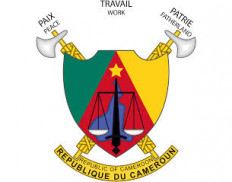Share
Print

As part of the implementation of the Poverty Reduction Strategy Paper (PRSP), the Cameroonian authorities intend to strengthen the participatory process by closely involving the various actors in the implementation, monitoring and evaluation phases of projects. poverty reduction and the overall strategy.
In this respect, the Ministry of Urban Development and Housing has set up an intervention modality in the urban sector that advocates synergy combining the capacities of urban stakeholders and even beneficiaries through the city contract.
This approach lends itself to relevance in the urban sector characterized by:
the complexity of the institutional landscape;
a multiplicity of often inconceivable interventions;
the weakness of financial resources allocated to urban development
The city contract is a "tool to increase the effectiveness of public interventions to improve the living conditions of populations in urban areas through a process of global and concerted reflection, formalized in the legal framework engaging the various actors what are the State Decentralized Territorial Communities and Civil Society in its various components ". In its structure, it presents reciprocal commitments by the contracting parties, the priority investment program and the accompanying measures relating respectively to the improvement of the management of the human and organizational resources of the municipalities; the consolidation of the municipal finances and the reinforcement of the technical capacities of the deconcentrated services of the State, the communes and the actors of the Civil Society.
The notion of city contract meets the demands of democratization of the urban sector and a better coordination of the interventions of the internal partners (State and its dismemberments Civil society, private sector) and international donors, this approach has many advantages among which can be found a concerted definition of priorities integrating beneficiaries, a clarification of responsibilities and an efficient mobilization of resources. It also allows the regulation and reduction of conflicts.
